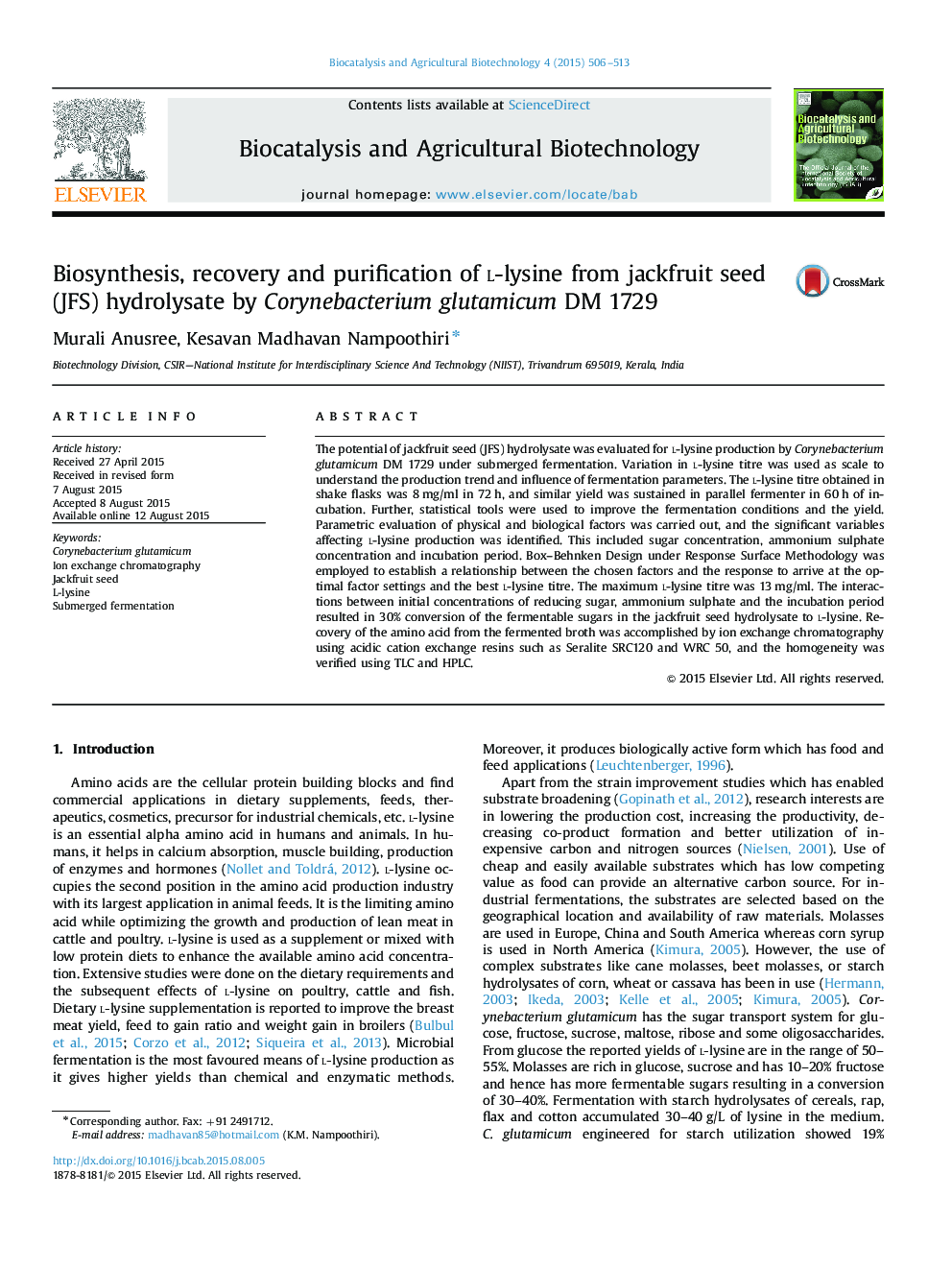| Article ID | Journal | Published Year | Pages | File Type |
|---|---|---|---|---|
| 2075300 | Biocatalysis and Agricultural Biotechnology | 2015 | 8 Pages |
The potential of jackfruit seed (JFS) hydrolysate was evaluated for l-lysine production by Corynebacterium glutamicum DM 1729 under submerged fermentation. Variation in l-lysine titre was used as scale to understand the production trend and influence of fermentation parameters. The l-lysine titre obtained in shake flasks was 8 mg/ml in 72 h, and similar yield was sustained in parallel fermenter in 60 h of incubation. Further, statistical tools were used to improve the fermentation conditions and the yield. Parametric evaluation of physical and biological factors was carried out, and the significant variables affecting l-lysine production was identified. This included sugar concentration, ammonium sulphate concentration and incubation period. Box–Behnken Design under Response Surface Methodology was employed to establish a relationship between the chosen factors and the response to arrive at the optimal factor settings and the best l-lysine titre. The maximum l-lysine titre was 13 mg/ml. The interactions between initial concentrations of reducing sugar, ammonium sulphate and the incubation period resulted in 30% conversion of the fermentable sugars in the jackfruit seed hydrolysate to l-lysine. Recovery of the amino acid from the fermented broth was accomplished by ion exchange chromatography using acidic cation exchange resins such as Seralite SRC120 and WRC 50, and the homogeneity was verified using TLC and HPLC.
